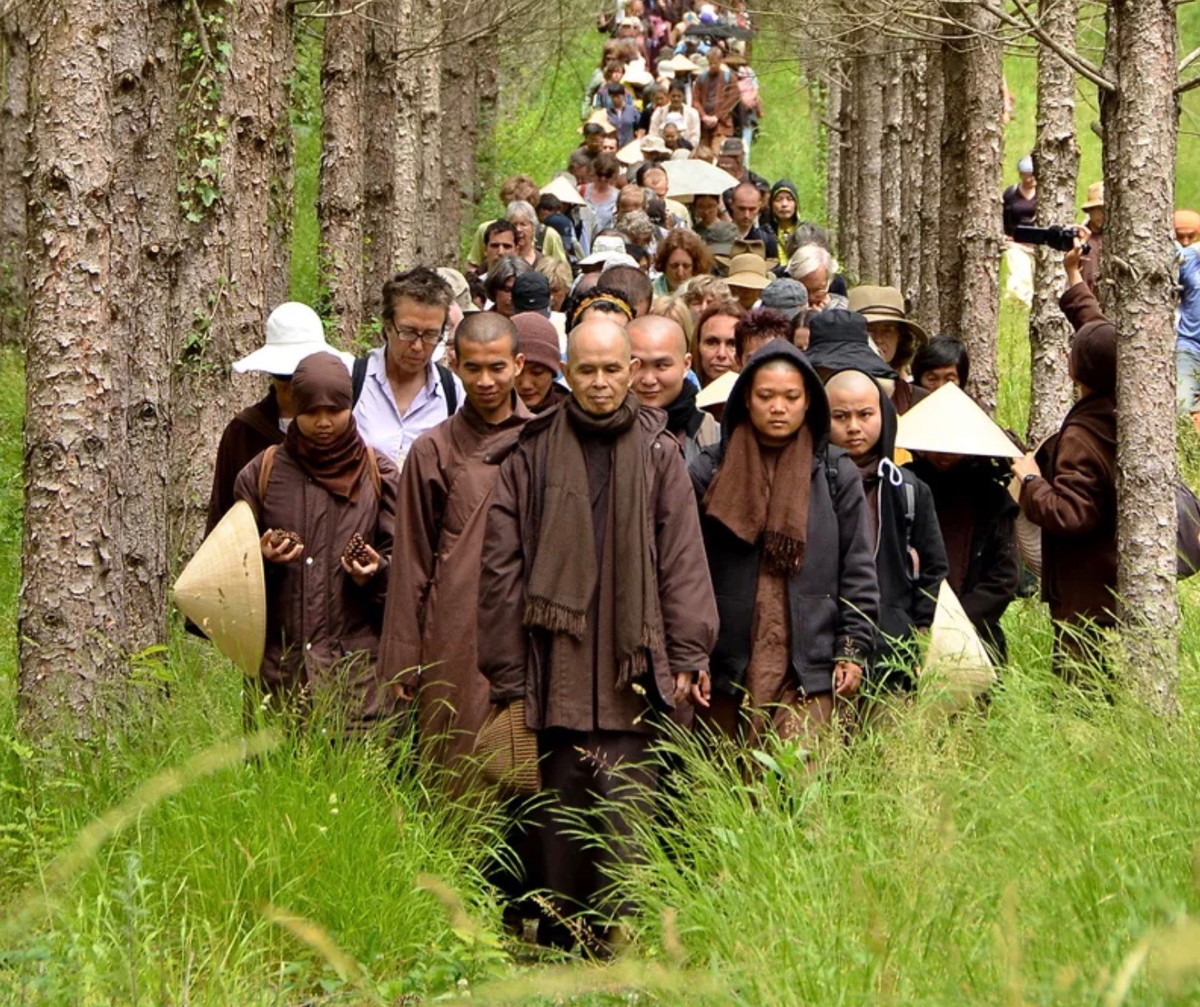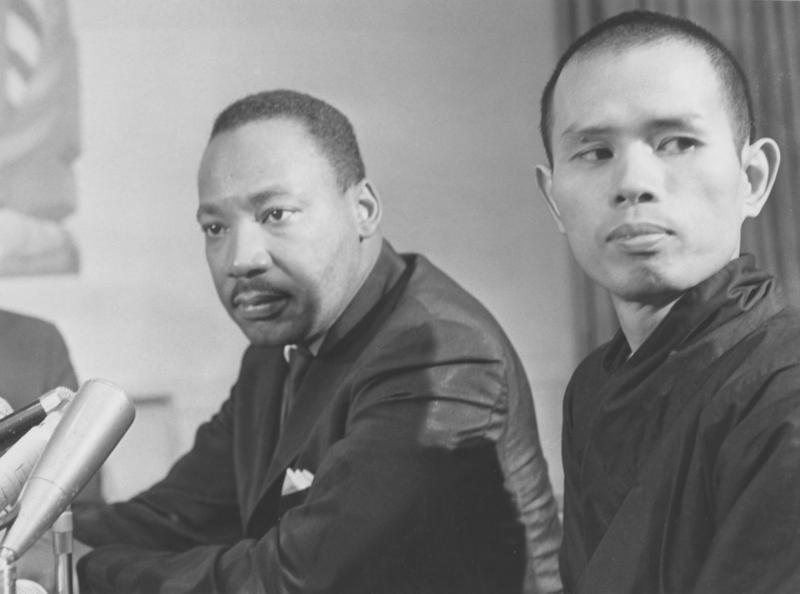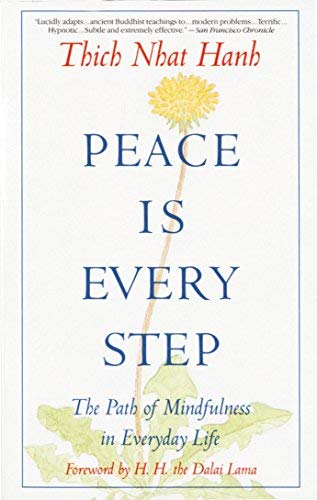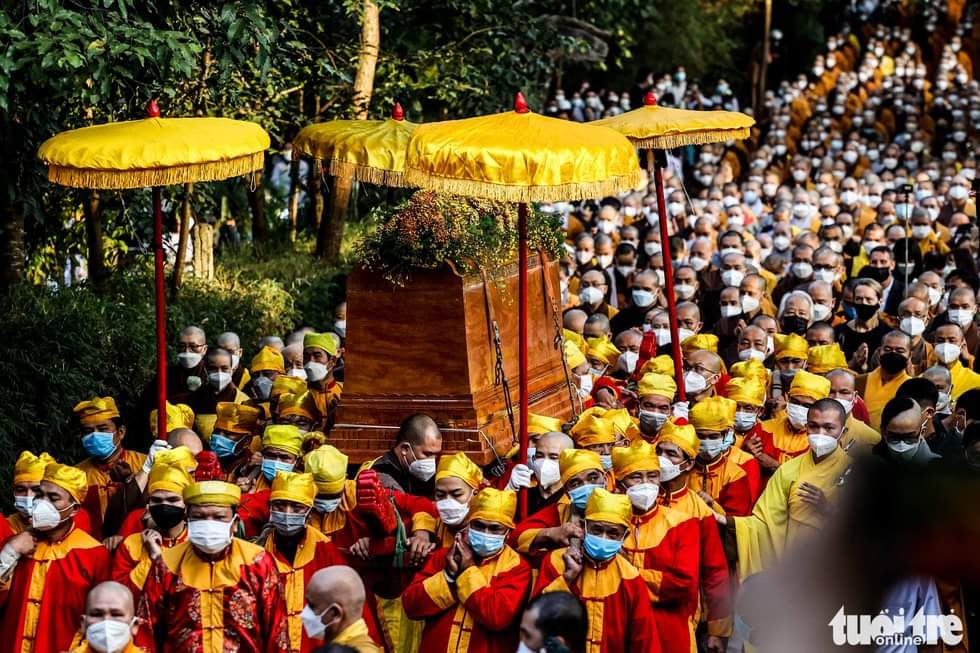Saying Goodbye to the Zen Master
Saying Goodbye to the Zen Master
by Bobby Rock

It’s been four weeks since we lost “the man:” Thich Naht Hanh. Here’s what I put on social the day after hearing about it.
Friends, this one hurts. A revered monk, poet, activist, and author of over 100 books—a number of which I’ve read—this gentle powerhouse of a man was a once-in-a-generation exemplar of love, peace, mindfulness, and higher consciousness for many decades. Thich Nhat Hanh’s work had an immeasurable influence on how I see the world, and how I live my life. We will miss you, Master T…
And yet, to say that he had an “immeasurable influence” on me still feels a little lightweight.
One of my favorite things about Thay (his beloved nickname—pronounced “Tie”—which means teacher in Vietnamese) was his ability to convey and illuminate the deepest spiritual philosophies in ways that were simple, memorable, and practical. He essentially showed the world how to operationalize higher consciousness, and he did this, decade after decade, through his writing, speaking, and perhaps most importantly, the trademark calm and mindful presence he displayed in, quite literally, everything he did. If anyone ever walked the talk… it was this guy.

He literally “walked the talk” with his countless walking meditations...
Richard Baker-roshi once described Thay as “a cross between a cloud, a snail, and a piece of heavy machinery—a true religious presence.” That about sums him up.
But for as gentle and serene as Thay was, he wasn’t exactly a portrait of passivity. In fact, he first came onto the international scene in his protest of the Vietnam war in the ’60s and would eventually be exiled from his home country. He referred to his movement as “engaged Buddhism”… a strong yet nonviolent approach to integrating Buddhist tenets in social and political reform. He also urged Martin Luther King, Jr. to oppose the Vietnam war, which he did. These two met on a couple of occasions, and Dr. King was so impressed with Thay that he nominated him for the Nobel Peace Prize in ’67 (although it wasn’t awarded that year).

Two giants: from a press conference in ‘66
Some years after exile, Thich established a monastery/retreat center in Plum Village, France. This led to his opening a number of learning centers around the globe in the decades ahead—as well as his increasing international notoriety as a beloved and respected leader, author, and teacher.
Which leads us to...
_______________
On a Personal Note: Peace Is Every Step
In 1993, I went through an unspeakable tragedy and was just trying to survive day-to-day life. It’s always tough to lose a loved one. But losing your beloved, so young (and with child), under extremely senseless and violent circumstances... well, that's a notch or two beyond just tough, no doubt. At 29, I felt that I was just far enough along in my spiritual journey to understand the existential significance of such an event… to understand that if I could grieve, process, forgive, carry on, etc, that, perhaps, I could learn and grow exponentially from such an experience. But again—I would have to survive it first.
This is where Thay's book, Peace Is Every Step, comes in. And it became a huge breakthrough tool for me, right when I needed it most.

Mindfulness, to me, is essentially the conscious immersion into the present moment, with little thought about the past or future—at least during those mindful pockets of time. I had been trying to practice more of this kind of thing as somewhat of a coping mechanism for what I was going through. But Thay's teachings took the whole concept to another level. It was all about mindfulness as a fundamental lifestyle philosophy, as opposed to just being a practice we drop in and out of like, say, meditation (although meditation is obviously a concentrated form of mindfulness). This practice enables you to go deep into any given moment, really savoring the beauty and wonder of things that we either flat-out miss every day, or have just stopped noticing. Being "in the moment" helped me get through those dark days, for sure. But it also became a new lifestyle philosophy for me... one that I still try to practice daily.
In fact, this, along with many of Thay's other philosophies, became foundational to a personal ethos centered around the daily practice of detachment from outcome and material possessions, nonjudgment, and the expression of non-violence and compassion to humans and animals. (Always a moment-to-moment work in progress, of course!)
While the book’s general teachings are simplistic for the individual, they remain profound in their potential collective global effect. Perhaps the Dalai Lama said it best in the foreword to Peace is Every Step:
Although attempting to bring about world peace through the internal
transformation of individuals is difficult, it is the only way. Wherever I go, I
express this, and I am encouraged that people from many different walks of
life receive it well. Peace must first be developed within an individual. And I
believe that love, compassion, and altruism are the fundamental basis for
peace. Once these qualities are developed within an individual, he or she is
then able to create an atmosphere of peace and harmony. This atmosphere
can be expanded and extended from the individual to his family, from the
family to the community, and eventually to the whole world.
Peace Is Every Step is a guidebook for a journey in exactly this direction.
Thich Nhat Hanh begins by teaching mindfulness of breathing and
awareness of the small acts of our daily lives, then shows us how to use the
benefits of mindfulness and concentration to transform and heal difficult
psychological states. Finally, he shows us the connection between personal,
inner peace and peace on Earth. This is a very worthwhile book. It can
change individual lives and the life of our society.
+ + + + + + +
Thay never saw death as that big of a deal, describing it as a natural transition from one form to another. And so it was that on January 22, at 95 years of age and at midnight on the button, the master slipped away to his next adventure. Official time of death: 00:00 1-22-22. I figured he planned it that way.
I caught Thay's service on Zoom. It was kind of an unusual medium for such an event... but a sign of the times, I suppose. Still, it was unexpectedly emotional for me.

Thousands joined Thay's procession...
Thich Naht Hanh’s teachings are ubiquitous around the web (and elsewhere), from his books, videos, lecture excerpts, social media sites, etc. But actually, I think his Oprah interview (circa 2012) is probably as good a place to start as any, just in terms of getting a vibe on the macro view of his life and philosophy.
Scope the excerpt below:
_______________
